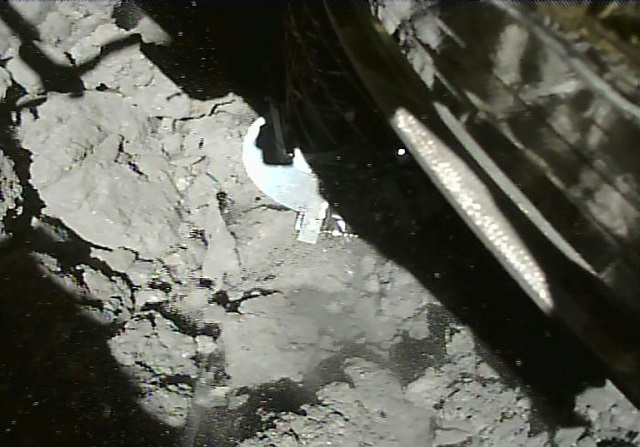
Science and Education Minister Koichi Hagiuda told reporters on Tuesday that the long voyage home would begin soon, with the probe expected to drop off its precious samples sometime in late 2020.
The mission took the fridge-sized probe some 300 million kilometers from Earth, where it explored the asteroid Ryugu, whose name means "Dragon Palace" in Japanese -- a reference to a castle at the bottom of the ocean in an ancient fable.
NASA just dropped a picture that looks eerie
In April, Hayabusa-2 fired an "impactor" into the asteroid to stir up materials that had not previously been exposed to the atmosphere.
It then made a "perfect" touchdown on the surface of the asteroid to collect the samples that scientists hope will provide clues into what the Solar System was like at its birth some 4.6 billion years ago.
The six-year mission has a price tag of around $278 million.
It took the probe three-and-a-half years to get to the asteroid but the return journey should be significantly shorter because Earth and Ryugu will be much closer due to their current positions.
NASA aims for first manned SpaceX mission in first-quarter 2020
Hayabusa-2 is expected to drop the samples off in the South Australian desert, according to officials from the Japan Aerospace Exploration Agency (JAXA) and the Australian Space Agency (ASA).
The probe is the successor to JAXA's first asteroid explorer "Hayabusa", which means falcon in Japanese.
The earlier probe returned with dust samples from a smaller, potato-shaped asteroid in 2010 despite various setbacks during its epic seven-year odyssey, and was hailed as a scientific triumph.







1732347751-0/Express-Tribune-(1)1732347751-0-270x192.webp)


1732264554-0/Copy-of-Untitled-(68)1732264554-0-270x192.webp)






COMMENTS
Comments are moderated and generally will be posted if they are on-topic and not abusive.
For more information, please see our Comments FAQ